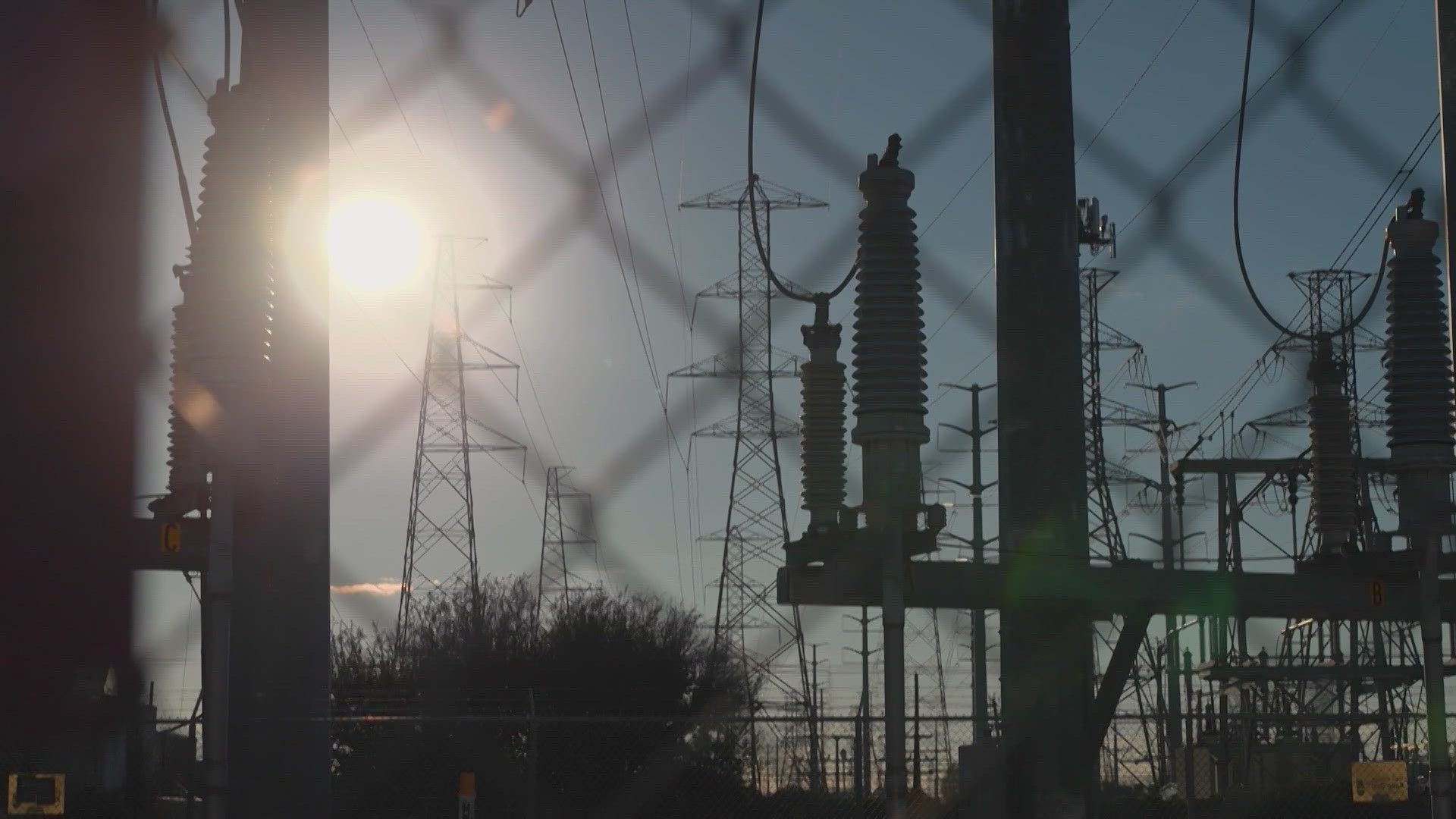DALLAS — Texas voters will decide in November whether to loan money to some electricity generators for construction projects meant to boost the power grid's capacity.
Lawmakers in May approved a measure placing the proposed constitutional amendment on Nov. 7 ballots. It aims to lure energy companies to build or expand electricity generators that run on natural gas, coal or nuclear fission.
Some legislators argue the state currently relies too heavily on renewable energy sources, which work best under favorable weather conditions.
"We have invested heavily in renewables," Lt. Gov. Dan Patrick said in March. "Now, it's time to invest in dispatchable."
Initially, state lawmakers would commit $5 billion to the idea. A committee would use that money to offer low-interest loans to power companies who agree to build or expand thermal energy plants.
The state would offer bonuses for projects completed before 2029.
Renewable energy projects will not be eligible for the loan program.
Critics question whether power producers want to build more fossil-fueled plants, which aren't as profitable as they used to be.
"I don't think anyone is going to take them up on it, frankly," University of Houston energy fellow Ed Hirs said.
Renewable energy is cheaper to generate, so it typically sells for a cheaper price. When possible, Texas utility companies prefer to buy electricity from solar and wind farms.
Fossil-fueled plants are often left out of the lucrative energy market during times of lower electricity demand.
"There's no real rate of return available for building a new natural gas-fired plant," Hirs said. "We know that it would be used less and less frequently because of the burgeoning growth in wind and solar."
"The ERCOT market is very similar to a baseball team where the players are only paid if they're taking the field tonight," Hirs continued. "Those guys who are on the bench don't get paid and, over the course of a season, some will go hungry."
By itself, the loan program would not likely help those companies bring in more money. Lawmakers approved a separate, somewhat experimental idea which aims to boost fossil-fueled plants' revenues.
"It doesn't matter if I get partial funding at a low interest rate," Hirs said. "It doesn't help me. If I don't have revenues in excess of my costs, I'm not going to make a return for my shareholders."
The measure would, however, make loans available for some projects which were already planned.
"There's this question of whether they're giving incentives for projects that would've already been done," Stoic Energy consultant Doug Lewin said.
But Lewin highlighted one aspect of the proposal which may draw skeptics' support. The constitutional amendment would allow Texas to grant or loan money to public health and safety facilities, like hospitals, for backup power systems.
These "microgrids" could allow such facilities to effectively separate from Texas's power grid during an emergency for up to two days. If Texas needed to institute rolling blackouts under such a scenario, it could shut power off in neighborhoods around hospitals without impacting the hospitals' operations.

